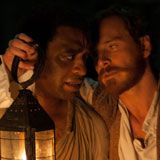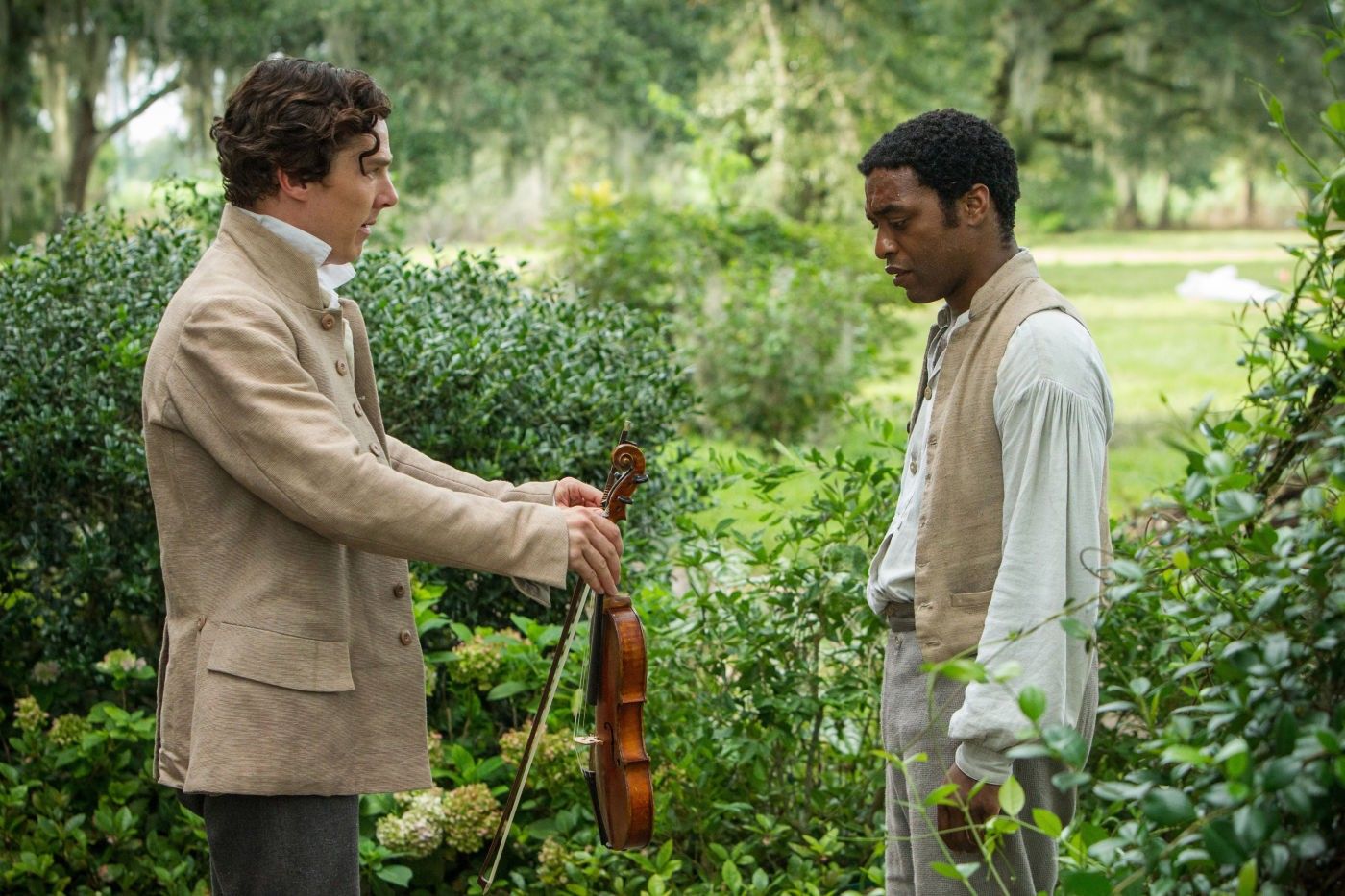As visceral as Gravity and as politically charged as Captain Phillips, only without the sci-fi detachment of the former or the historical immediacy of the latter, 12 Years a Slave is as powerful a movie as you’re likely to see in 2013. An adaptation of Solomon Northup’s autobiographical novel of the same name, director Steve McQueen’s historical drama oddly aligns with these decidedly more contemporary films by building a universally relatable story from a specific set of circumstances. A masterful film that’s brutal, thought-provoking and undeniably affecting, 12 Years a Slave nakedly depicts the inhumanity and hopelessness of American slavery, and at the same time chronicles the perseverance, and resilience, of the human spirit.
Chiwetel Ejiofor (Children of Men) plays Northup, an educated, free man who is kidnapped and sold into slavery after being lured from New York to Washington, D.C., under the guise of being hired as a musician. Brutalized by slave traders and robbed of his name, he’s eventually sold to a plantation owner named Ford (Benedict Cumberbatch) who appreciates his skills and intelligence, even if he cannot help free him.
After Northup retaliates against a farm hand (Paul Dano), Ford is forced to sell him to a much harsher master, Edwin Epps (Michael Fassbender), in order to save him from being put to death. But even as he begins to encounter white men who seem receptive to his plight, Northup struggles for survival as Epps’ unpredictable cruelty challenges not only his physical safety, but his will to live.
McQueen’s tableau-like approach to storytelling languishes as much in grand traumas as in small, resonant details, staying with Northup in an unbroken shot, for example, after he is almost hanged, but stands on tiptoe, struggling for air, when he isn’t released from the noose. The fluid simplicity of the camerawork when capturing Northup’s life as a free man soon gives way to stark, unglamorous shots of the disorienting world around him as he is sold into slavery. What in another film might have been pastoral beauty plays as a disorienting nightmare here, as McQueen’s camera gazes coldly at the churning water behind the barge that carries Northup away from freedom, or the binding green shackles of sugarcane plants that envelop him as he works in the fields.
Ejiofor’s performance is a study in restraint, a combination of stunningly detailed character work and the sort of unforced naturalism that truly talented actors can generate. Northup’s sense of comfort and privilege of course seems hopelessly naïve to audiences that know what’s to come, but Ejiofor makes his transition from free man to slave without any sort of cartoonish culture shock, instead observing the sad, slow disappointment that comes from his realization that things aren’t quite as progressive as he once thought. Ejiofor conveys the character’s quiet resilience as a mask for his debilitating desperation and irrepressible outrage – which mirrors the audience’s – but he also portrays it honestly, giving a performance that feels fully authentic to the time and place rather than, say, through the perspective of more contemporary black-white relations.
Fassbender, meanwhile, has more or less argued in interviews that his character, Epps, is pure evil. While he’s undoubtedly, indefensibly despicable, Fassbender never ceases to make Epps convincingly human, depicting his mercurial behavior in ways that ensure audiences don’t look at him as a cipher or caricature. His casual attitudes about his slaves, particularly Lupita Nyong’o as Patsey, whom he brutalizes but clearly cares for in ways that he himself could never recognize or acknowledge, is terrifying enough. But Fassbender installs life behind the character’s cold eyes in the same way that, say, Christoph Waltz did with Hans Landa in Inglourious Basterds, and if he is similarly recognized with awards for his performance at the end of the year, he’ll deserve them.
McQueen’s films, which also include Hunger and Shame, are unforgiving to audiences, chronicling the protagonists’ pain in equally physical and emotional dimensions. And as such, it’s easy to look at a film like this one, which purports to depict slavery in such an honest and realistic way, as its own form of Grand Guignol spectacle – an almost-titillating representation of dehumanization. But McQueen’s studious avoidance of fetishizing the violence in the film, and further, examining the characters’ behavior in a personal rather than a sociological way, elevates it beyond criticisms of exploitation. Ultimately a perversely timely film given the politically charged atmosphere of the United States, 12 Years a Slave has much to say; but it’s most profound in its absence of a message, which allows it to transcend the label of its medium and become something not to watch or understand, but truly experience.
12 Years a Slave opens today in limited release, and Nov. 1 nationwide.


